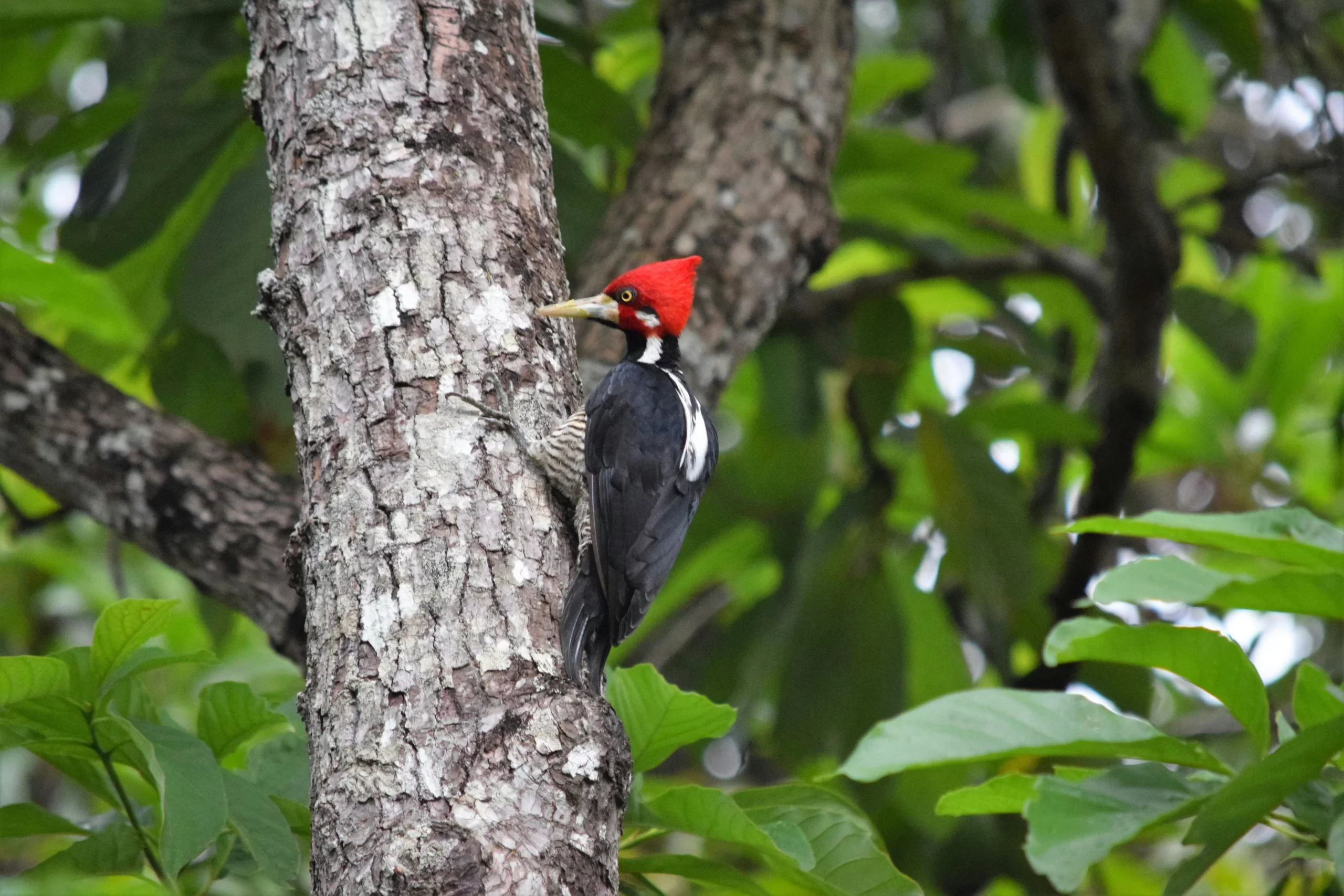No one will dispute the aptness with which woodpeckers have been named. Indeed, this diverse family of birds contains more than 230 woodpecker species. However, despite this diversity, all woodpeckers share a fondness for pecking wood. So, what’s up with this habitat – why do woodpeckers peck wood? Moreover, do woodpeckers kill trees?
Although it’s undeniable that woodpeckers peck holes in trees, these birds rarely damage the trees. Therefore, landowners should not fear that woodpeckers will kill their trees if they see woodpeckers on their land.
A healthy tree will have no problem surviving the wounds that woodpeckers inflict. If a tree does happen to die soon after a woodpecker visits, another factor like disease, pests, or some other stress is almost certainly playing a role in its demise.
My assertion may not be enough to convince you that woodpeckers aren’t bad for trees. Therefore, let’s further investigate the topic by addressing the question, “Can a woodpecker damage a tree?”.
Table of Contents
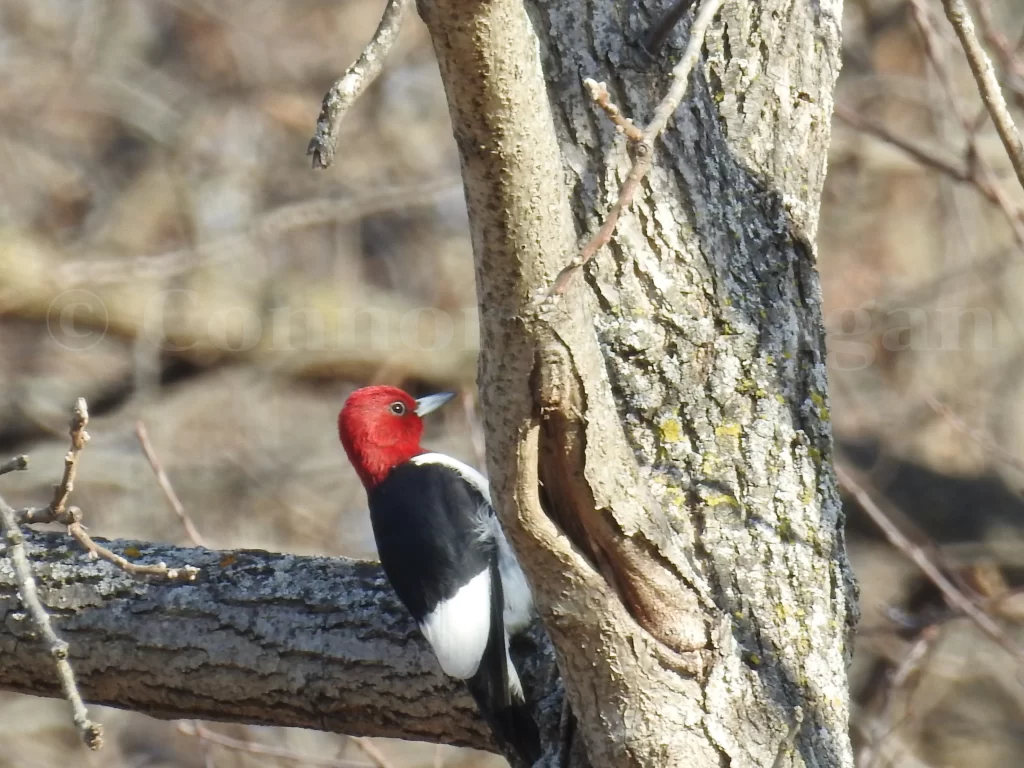
Are Woodpeckers Bad For Trees?
Now that we’ve confirmed that woodpeckers aren’t downing trees with their pecking, you may want to know more about the effect that woodpeckers have on trees. Can woodpeckers damage trees – are woodpeckers bad for trees?
Woodpeckers are well known for their tendency to bore holes into trees, but this does not mean that woodpeckers are inherently bad for trees. Yes, woodpeckers create holes of various sizes in trees, but a healthy tree will heal from these minor afflictions with little problem.
Sapsuckers are a group of woodpeckers native to North America. They feed by drilling dozens of holes into trees and waiting for sap to accumulate in the holes. Trees commonly produce this sap to heal from injuries, but this resource is a nutritious treat for woodpeckers – not to mention all of the bugs that are attracted to this sap.
This feeding style is unique among sapsuckers, differing from the feeding styles of other woodpeckers. For starters, sapsuckers drill more holes into individual trees than other woodpeckers. Moreover, sapsuckers usually feed on live trees, as dead trees don’t produce sap. Sapsuckers will use this feeding style during all times of year–even on migration.
Sapsuckers certainly have the potential to inflict more damage on a live tree compared to other woodpeckers. Still, a healthy tree should be able to survive with ease.
Can Woodpeckers Kill Trees?
We’ve established that the answer to the question, “Do woodpeckers kill trees?” is no, but some are curious to know about what would happen if a woodpecker did want to kill a tree. Can woodpeckers kill trees if they truly desired?
Yes, if a woodpecker was set on killing a tree, it could accomplish this task, as these birds are experts are boring into trees. Although woodpeckers are physically equipped to kill trees, I must reiterate that these birds have no desire to kill trees.
Trees die out at a rate that is quite satisfactory to woodpeckers. Indeed, between disease, pests, natural disasters, and old age, there are plenty of dead trees for woodpeckers to enjoy.
Do Woodpeckers Only Peck Dead Trees?
You may have heard that woodpeckers only drill into dead trees, but is this assertion correct? Do woodpeckers only peck dead trees?
Woodpeckers primarily seek trees that have a preexisting stressor. For instance, they love to feed on dead trees and trees that are afflicted with some sort of disease or pest. Such trees are wonderful targets for woodpeckers, as they host a wide array of insects that woodpeckers love to eat. Although woodpeckers love to target trees that are on the cusp of death, will woodpeckers kill trees if they start to drill into them?
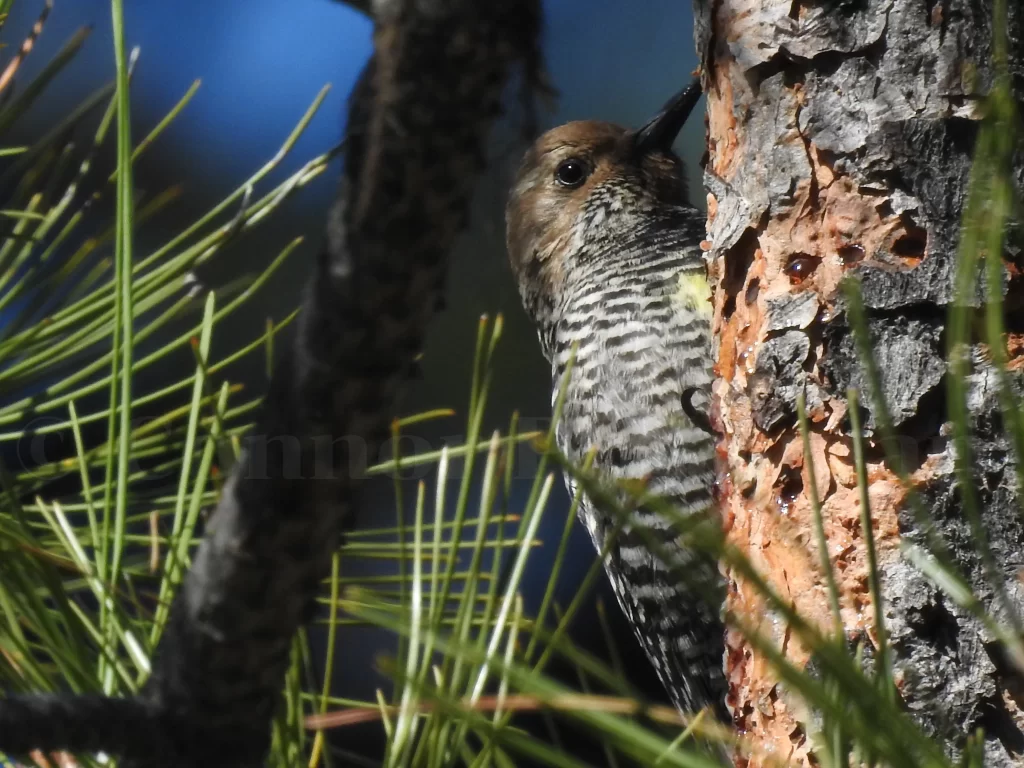
Woodpeckers are rarely responsible for causing the demise of a tree, but while they typically try to forage on dead or dying trees, woodpeckers may forage on healthy trees. For instance, recall that sapsuckers bore holes into live trees. In addition to sapsuckers, other woodpeckers will forage for insects on live trees. This may cause them to drill small holes into these trees, but the bigger holes are typically found on dead trees.
Therefore, woodpeckers do not only peck dead trees. Instead, they will peck any tree, and there are a variety of reasons for this behavior. Let’s investigate this topic further – why do woodpeckers peck wood?
Why Do Woodpeckers Peck Wood?
The fact that woodpeckers peck wood is undisputable, but the reasons why these birds behave in such a way are not understood by most. Can woodpeckers damage trees in the pecking process? Moreover, why do woodpeckers make holes in trees?
Three big reasons may prompt a woodpecker to peck wood. Let’s begin by discussing foraging – a topic that I’ve already mentioned several times in this article.
Woodpecker diets are comprised of a variety of seeds and suet. Woodpeckers especially love eating the larvae of bugs like beetles, termites, and ants. These creatures often live under the bark or outer layer of wood in trees, so woodpeckers often have to drill into trees to access the insects that they seek.
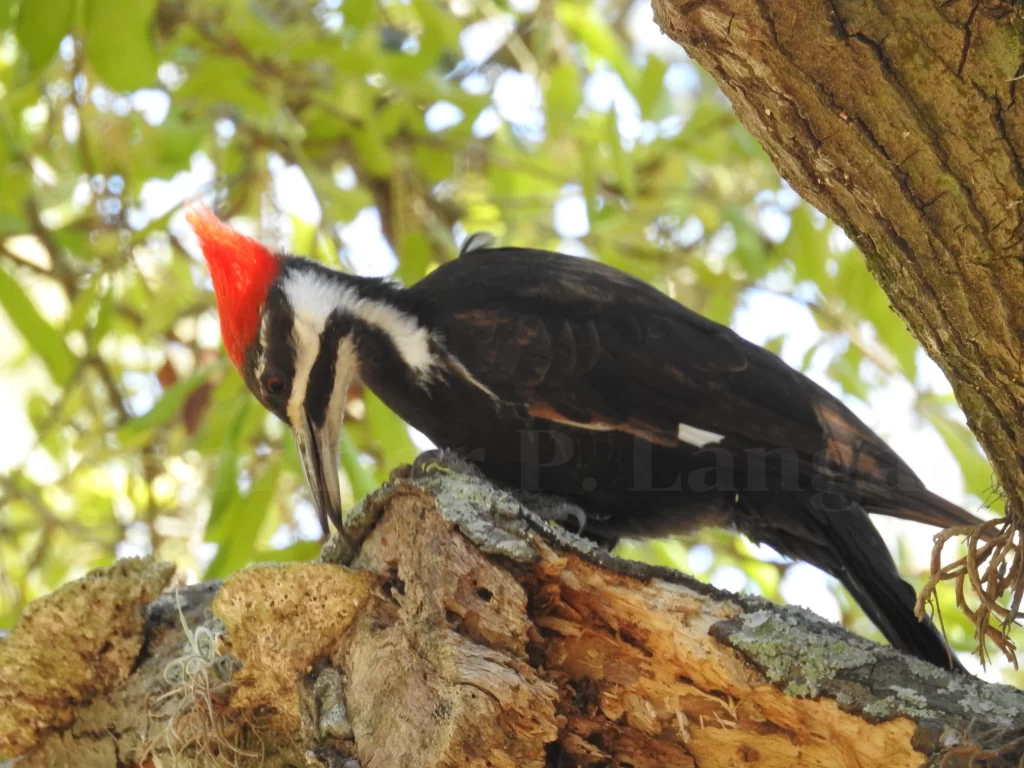
If you notice a woodpecker shuffling up a tree and occasionally stopping to drill, it is certainly looking for its next meal. Okay, so we know that woodpeckers may find a meal in a tree, but why do woodpeckers peck trees aside from the purpose of finding a meal?
Well, another reason that woodpeckers may peck at a tree is for communication. That’s right – woodpeckers are not songbirds, so they produce a few vocalizations, but these are not sufficient for advertising their territories. Instead, woodpeckers have found that drumming is a great way to proclaim their territory.
Drumming is a process that involves quickly striking a tree to produce sound. Woodpeckers typically select dead trees for this, as dead trees tend to produce more noise compared to live trees, but they may use live trees as well. Do woodpeckers kill trees during the drumming process? No, woodpeckers don’t intend to drill into a tree during drumming – they merely want to make noise to communicate with other woodpeckers.
Now that we’ve covered foraging and drumming, it’s time to discuss the final reason why woodpeckers peck at trees: nesting. Yes, woodpeckers are ecosystem engineers as the nest cavities created by a pair of woodpeckers are commonly used by other animals during subsequent seasons. Although making a nest sounds harmless enough, some wonder if woodpeckers harm trees in the process. Can woodpeckers kill a tree by making a nest in it?
Although nest cavities can be sizable, they are typically located in dead or dying trees. Therefore, they rarely have an impact on the health of a tree.
Do Woodpeckers Eat Wood?
Woodpeckers spend so much time pecking at wood that some wonder if wood is part of a woodpecker’s diet. Is this true – do woodpeckers eat wood?
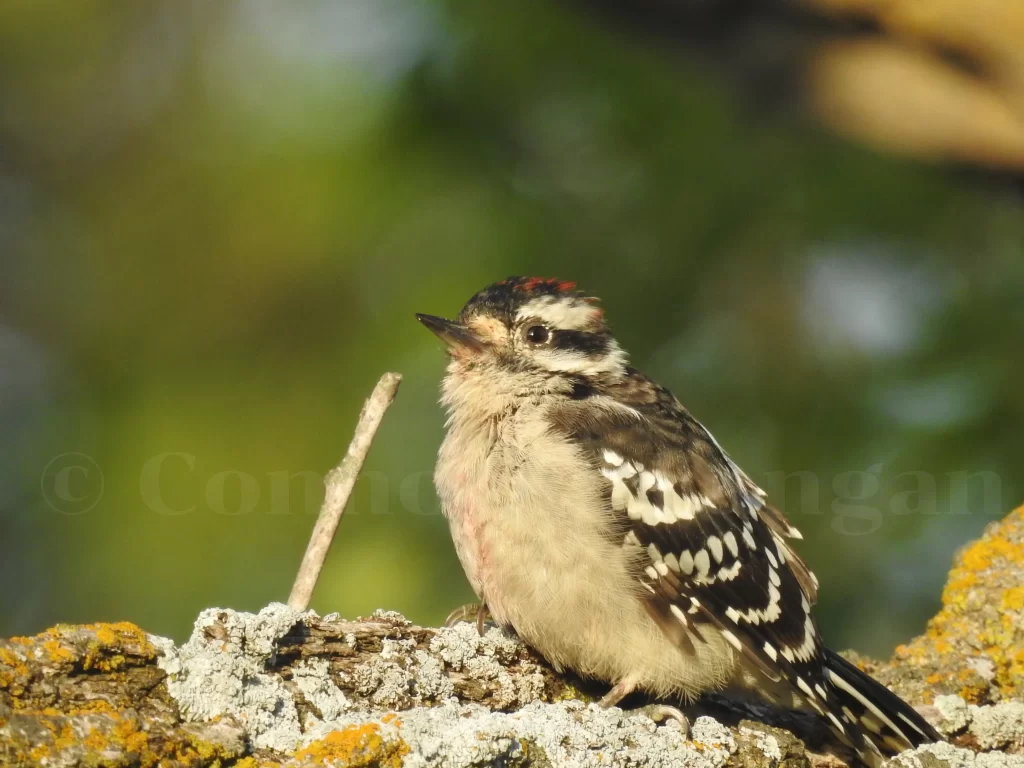
No, woodpeckers do not eat wood. At least, they don’t eat wood intentionally. If you’ve read the whole article to this point, you’ll know that woodpeckers primarily consume insects and seeds that they find after boring into trees. Now, they doubtlessly consume wood shaving incidentally as they try to capture prey, but woodpeckers don’t intentionally try to eat wood.
How To Prevent Woodpecker Damage To Trees
Some who witness the wounds that woodpeckers leave on trees may be keen on preventing these birds from damaging trees. There are some very inhumane ways of discouraging woodpeckers, but I’ll focus on the responsible means of discouraging woodpeckers.
If you notice that a woodpecker is repeatedly drilling holes into a certain tree, you can cover the area with burlap to prevent the bird from visiting. This method will not harm the bird, instead prompting them to forage elsewhere while the tree heals.
If you’re hoping to try something else, try putting an owl decoy or another raptor decoy in an area that woodpeckers frequent. This should scare woodpeckers and prompt them to leave an area for a while.
Another thing that some recommend is installing a woodpecker suet feeder. This may negate their desire to peck at trees for food, but it may also entice them to remain in the area and create a nest.
Conclusion
Although many are quick to blame woodpeckers for dying trees, sincere tree damage from woodpeckers is essentially nonexistent. Let’s review some points about woodpecker tree damage to drive this point home:
- Do woodpeckers kill trees? No
- Do woodpeckers only peck dead trees? Although woodpeckers primarily peck dead trees, they may peck live trees.
- Can a woodpecker damage a tree? Woodpeckers may temporarily inflict minor damage to trees, but healthy trees will quickly recover.
- Do woodpeckers hurt trees? Woodpeckers rarely inflict lasting damage to trees.
- Why do woodpeckers peck wood? Woodpeckers may peck wood to find food or communicate with others.

